How Parking Lot Payment Systems Drive Urban Growth and Efficiency
Table Of Contents
Published Date :
18 Sep 2025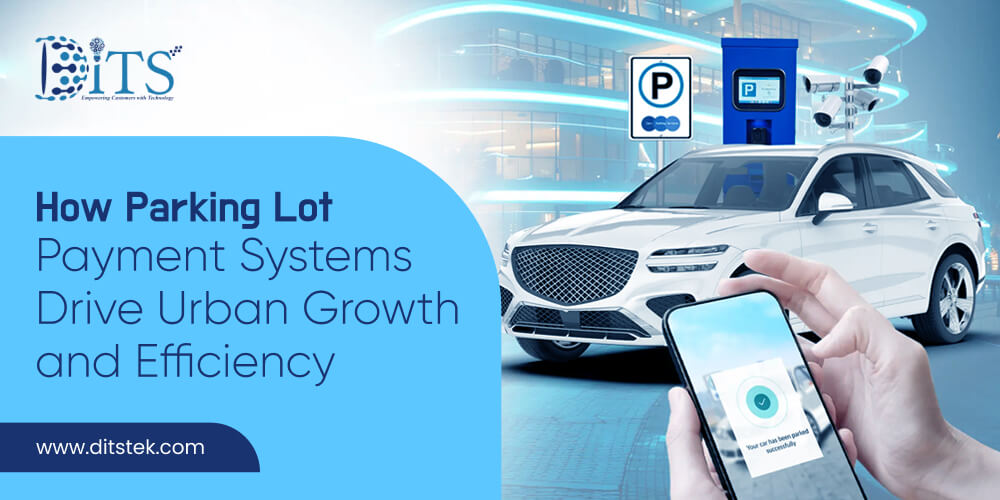
In today’s rapidly expanding cities, parking is a key element of urban mobility and business success. Parking lot payment systems have progressed from basic manual ticketing to advanced, automated solutions that offer speed, convenience, and accuracy. For shopping malls, top-rated hotels, and large parking facilities, adopting a modern payment system can significantly speed up the payment process and improve customer satisfaction.
The growth of smart city infrastructure has increased the adoption of smart parking systems, which bring together automation, real-time data analytics, and mobile convenience to create a frictionless parking experience.
However, parking is also a challenge in urban locations due to a lack of space and proper management systems. This blog shares the challenges of parking in urban areas and how parking lot systems contribute to urban development.
How Parking Lot Payment Systems Support Urban Development
Parking lots in modern cities struggle to manage space efficiently, reduce congestion, and improve accessibility. Well-designed parking lot payment systems contribute to these goals by streamlining parking payments, reducing waiting times, and managing traffic flow. They offer quick and secure payment handling, enabling drivers to spend less time on payments and searching for parking spaces, which minimizes overall congestion.
For businesses, these smart parking system can offer tangible benefits. Shopping malls can accommodate more customers, hotels can provide a convenient check-in experience that includes parking, and large facilities can better manage peak-time demand. By integrating AI-based parking Management Software, operators can collect and analyze usage data to forecast demand, optimize space allocation, and even adjust pricing dynamically.
Ready to Modernize Your Parking Operations?
Discover how next-gen parking lot payment systems cut costs, boost revenue, and enhance customer satisfaction in competitive urban spaces.
Benefits of Upgrading to Modern Parking Payment Solutions for Businesses
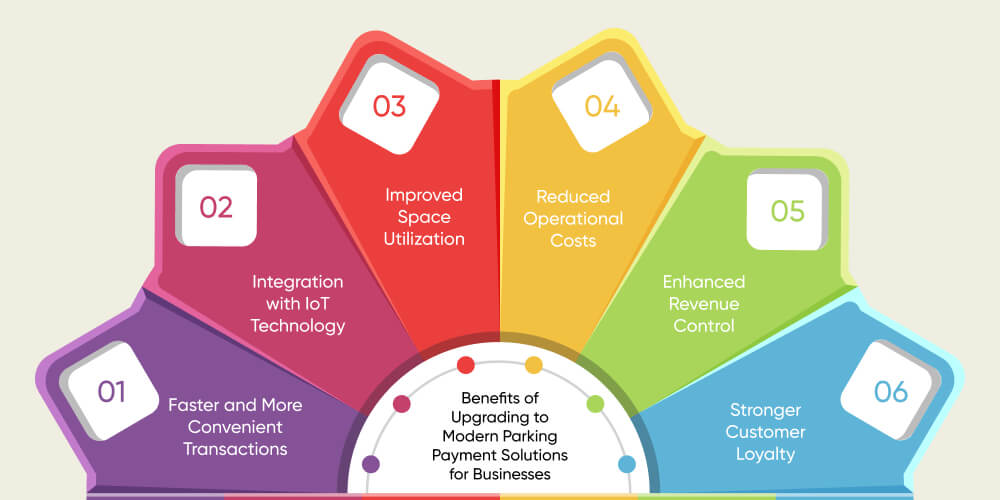
Upgrading to advanced parking lot payment systems brings significant advantages for malls, hotels, and high-capacity parking facilities.
Faster and More Convenient Transactions
Modern systems reduce waiting times at entry and exit points, enabling quick and easy transactions. Customers can pay through contactless methods or mobile apps, improving their overall experience and satisfaction, while businesses benefit from smoother vehicle flow and higher turnover during peak hours.
Integration with IoT Technology
With IoT based Parking Management Software, every part of the parking process, from space detection to payment confirmation, is automated and connected. Sensors, smart barriers, and mobile apps work in sync, providing real-time occupancy updates and streamlining operations without requiring constant manual intervention.
Improved Space Utilization
Real-time occupancy data enables parking operators to maximize available space, reducing idle spots and ensuring efficient turnover. This is especially beneficial in busy urban centers where parking demand often exceeds supply, allowing facilities to serve more vehicles without expanding infrastructure.
Reduced Operational Costs
Automated systems lower the need for manual ticketing and payment processing staff. This not only saves labor costs but also minimizes human errors and operational inefficiencies. Over time, the savings can be reinvested into further upgrades or customer service enhancements.
Enhanced Revenue Control
Payment automation reduces revenue leakages by tracking every transaction accurately. Operators gain access to detailed financial reports, enabling them to analyze revenue patterns, detect irregularities, and make informed pricing and operational decisions that improve profitability.
Stronger Customer Loyalty
Integrating payment systems with loyalty programs allows businesses to reward frequent users, encouraging them to return. This creates a stronger bond between customers and the brand, driving repeat business and increasing long-term revenue potential for malls, hotels, and commercial facilities.
Technologies Powering Next-Gen Parking Payment Systems
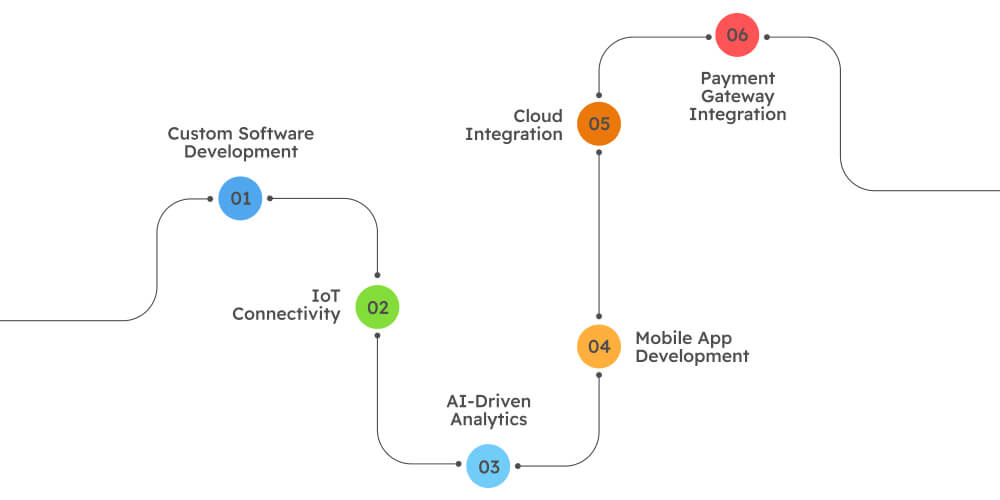
Modern parking lot payment systems combine cutting-edge technologies to deliver efficiency, security, and enhanced customer service. These advancements are shaping the future of parking management solutions for businesses and cities alike.
Custom Software Development
Tailored platforms ensure smooth integration with CRMs, POS systems, and facility management tools. These systems can be customized for unique operational needs and maintain complete control over parking operations.
IoT Connectivity
IoT sensors, cameras, and barriers work together to detect vehicle entry, monitor occupancy, and trigger automated payments. In projects such as Smart Parking Management in Qatar, this technology has drastically improved efficiency by enhancing space monitoring and offering real-time access to spaces in parking lots.
AI-Driven Analytics
AI enables real-time data processing for predictive occupancy forecasting, automated pricing adjustments, and anomaly detection. At DITS, we integrate AI into every custom software solution to ensure smart decision-making and improved system responsiveness.
Mobile App Development
User-friendly apps allow customers to reserve spaces, pay in advance, and receive navigation assistance. Businesses benefit from increased customer satisfaction and streamlined payment processing through direct app-based transactions.
Cloud Integration
Cloud-based parking management system deployments offer scalability, allowing operators to manage multiple facilities from a single dashboard. This ensures operational consistency and reduces infrastructure costs while enabling secure remote access.
Payment Gateway Integration
Secure, multi-channel payment options, including credit card, mobile wallet, and contactless payments; enhance user convenience and reduce transaction times, making the parking process smoother for all stakeholders.
Is Your Parking Strategy Future-Ready?
Understand how AI, IoT, and cloud integration turn parking into a revenue-generating, customer-first asset in modern cities.
How Data and AI Improve Parking and Mobility Planning
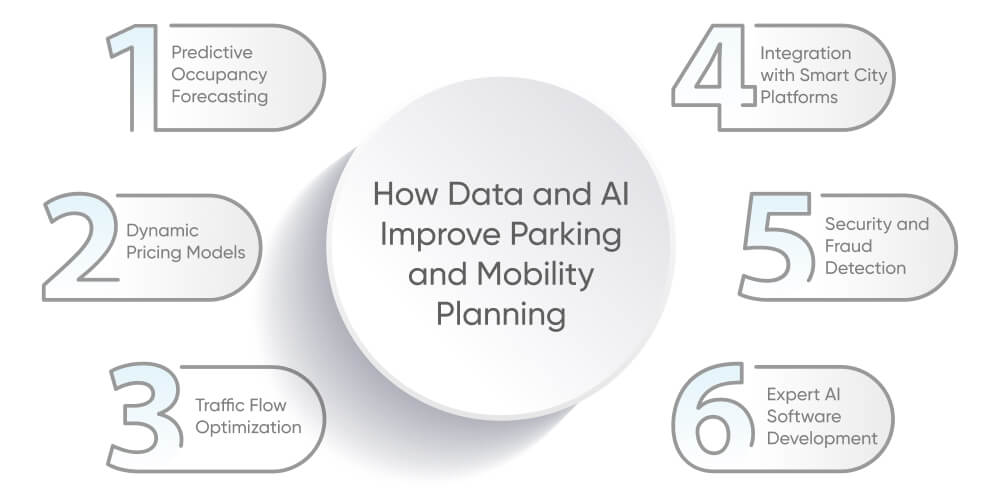
Data and artificial intelligence are transforming parking solutions from basic payment processing tools into powerful city mobility assets. By analyzing real-time occupancy, traffic flows, and historical trends, AI-powered systems enable better space utilization, smarter pricing, and improved customer experiences.
Predictive Occupancy Forecasting
Using machine learning, parking operators can anticipate demand during peak hours, events, or seasonal fluctuations, ensuring space is allocated more efficiently and congestion is minimized.
Dynamic Pricing Models
AI systems analyze usage trends to automatically adjust parking rates based on demand, location, and time of day, helping businesses maximize revenue without overcharging customers.
Traffic Flow Optimization
Real-time traffic and parking data integration reduces bottlenecks and improves accessibility, making it easier for customers to reach their destinations without unnecessary delays.
Integration with Smart City Platforms
Modern AI-driven parking systems share data with city mobility networks, enabling coordinated traffic management, public transportation schedules, and urban planning decisions.
Security and Fraud Detection
AI algorithms can identify suspicious transactions or unusual patterns, adding an extra layer of protection to parking operations.
Expert AI Software Development
At DITS, our expertise in AI Software Development ensures that every parking platform we build benefits from intelligent analytics, predictive modeling, and automation. This enables our clients to gain actionable insights while reducing operational inefficiencies.
Examples of Businesses Benefiting from Modern Parking Payment Systems
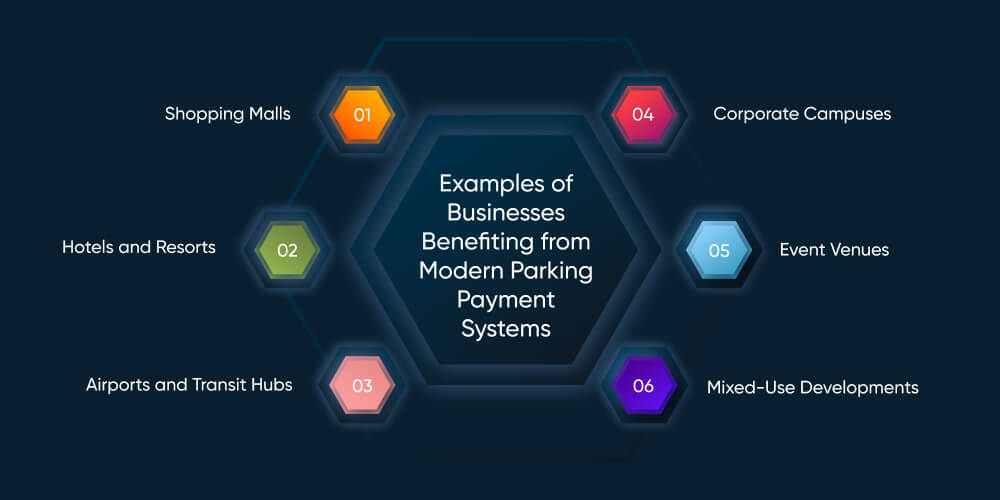
Modern parking lot payment systems are adaptable, making them suitable for different types of commercial and high-traffic facilities. Whether serving daily commuters, guests, or event attendees, a well-implemented parking management system can drastically improve service quality and operational control.
Shopping Malls
Malls with high daily foot traffic benefit from faster vehicle turnover, reduced congestion, and loyalty program integration, encouraging repeat visits and longer shopping durations.
Hotels and Resorts
Seamless integration of guest parking with reservation and billing systems creates a stress-free check-in and check-out experience, improving guest satisfaction and ratings.
Airports and Transit Hubs
These locations handle massive vehicle volumes daily. Automated payments and space allocation reduce queues and enhance overall efficiency during peak hours.
Corporate Campuses
Businesses can manage employee and visitor parking more efficiently by utilizing access control and reservation systems, thereby avoiding space shortages.
Event Venues
Dynamic setup capabilities allow parking operators to scale up capacity during concerts, sports events, or exhibitions without disrupting the usual flow.
Mixed-Use Developments
Integrated systems allow shared parking spaces between retail, residential, and office facilities, maximising utilisation and reducing costs for developers.
Is It Time to Upgrade Your Parking System?
Evaluate the ROI of moving to modern payment systems—higher turnover, better data, and stronger brand positioning await.
Why Choose Our Team for Your Parking Payment Modernisation
Upgrading to advanced parking lot payment systems is more than just a technology shift — it’s a strategic move that can enhance revenue, improve customer satisfaction, and strengthen your brand’s market position. At DITS, we specialize in delivering fully customized parking solutions that meet the unique needs of shopping malls, hotels, airports, and large parking facilities.
Our expertise spans multiple domains, from IoT Software development that connects physical hardware to cloud systems to AI-powered analytics that enable predictive pricing and smart space allocation. Every platform we build integrates security, scalability, and ease of use, ensuring a smooth transition from outdated systems to future-ready solutions.
We don’t just deliver software, we provide business outcomes by delivering custom software development services in South Africa, United States, and many countries across the globe. With our blend of innovation, industry knowledge, and cutting-edge technology, your parking operations can move from functional to exceptional, giving you a competitive edge in a rapidly evolving urban landscape.
Conclusion
The evolution of parking lot payment systems is reshaping how cities function and how businesses operate. From improving traffic flow to enhancing customer satisfaction, these systems play a pivotal role in creating more accessible, efficient, and profitable parking environments.
For malls, hotels, airports, and other high-demand facilities, modernizing your parking infrastructure isn’t just about convenience — it’s about staying competitive. By leveraging AI, IoT, and advanced software capabilities, businesses can optimize space usage, reduce operational costs, and generate valuable data-driven insights.
At DITS, we combine innovation with deep industry expertise to deliver innovative parking solutions tailored to your needs. Whether you’re aiming to improve operational efficiency or elevate the customer experience, our team can help you transform your parking operations into a strategic advantage for the future.
FAQs
Q1. How does the parking lot payment system work?
A parking lot payment system automates the process of vehicle entry, exit, and fee collection. When a vehicle enters, sensors or cameras register its license plate or issue a ticket. Upon exit, the system calculates the fee based on the duration of stay. Customers can then pay through kiosks, mobile apps, or contactless methods.
Q2. How do parking lot payment systems improve customer experience?
Parking lot payment systems streamline entry and exit, offer contactless payment options, and reduce wait times. This convenience increases customer satisfaction and encourages repeat visits to facilities such as malls, hotels, and event venues.
Q3. What technologies power modern parking management solutions?
Modern parking management solutions use AI, IoT, mobile apps, and cloud integration. These technologies enable real-time space monitoring, predictive pricing, automated transactions, and improved operational control for parking operators.
Q4. Why should businesses upgrade their parking payment infrastructure?
Upgrading ensures faster transactions, better space utilization, and higher revenue control. With advanced AI and IoT features, businesses can gain valuable insights, reduce costs, and create a seamless parking experience that aligns with smart city goals.
Q5. What is the ROI of upgrading to a modern parking lot payment system?
The ROI comes from faster transactions, higher turnover rates, reduced staffing costs, and improved space utilization. Additionally, advanced systems provide accurate revenue tracking, helping eliminate leakages and boosting profitability.
Q6. Can parking lot payment systems integrate with my existing operations software?
Yes. Most modern solutions are designed to integrate with POS, CRM, ERP, and facility management tools. Custom development ensures seamless data exchange and smooth daily operations.
Q7. How do parking lot payment systems reduce operational costs?
Automation cuts down the need for manual staff at payment booths, minimizes transaction errors, and streamlines monitoring processes. Over time, this reduces payroll, administrative overhead, and maintenance expenses.
Q8. Are parking lot payment systems secure for cashless transactions?
Absolutely. Modern systems use encryption, tokenization, and secure payment gateways to protect transactions, minimizing the risk of fraud and ensuring customer trust in your facility.
Q9. How can AI and IoT improve the performance of my parking facility?
AI enables predictive analytics for demand forecasting, while IoT devices provide real-time occupancy and automated entry/exit. Together, they create a smoother, more efficient parking experience and help maximize operational efficiency.

Dinesh Thakur
21+ years of IT software development experience in different domains like Business Automation, Healthcare, Retail, Workflow automation, Transportation and logistics, Compliance, Risk Mitigation, POS, etc. Hands-on experience in dealing with overseas clients and providing them with an apt solution to their business needs.
Recent Posts

Learn the automotive software development cost breakdown. Discover key pricing factors to help plan your budget and invest wisely in custom automotive software.
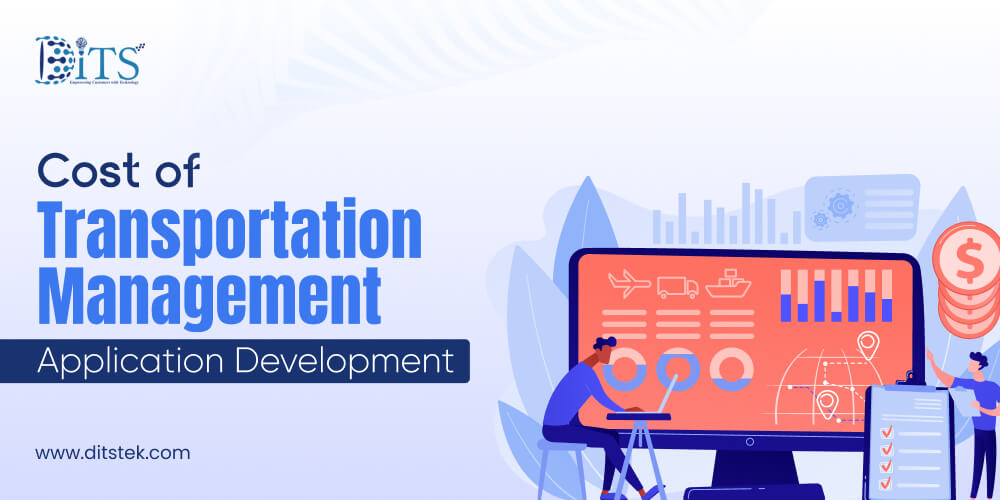
A practical breakdown of transportation management application development costs, covering scope, technology, and strategic choices that shape budgets and long term operational value for businesses.

Protect and scale your law firm with expert IT consulting from Ditstek Innovations. We build solutions for security, compliance, and long-term growth.
